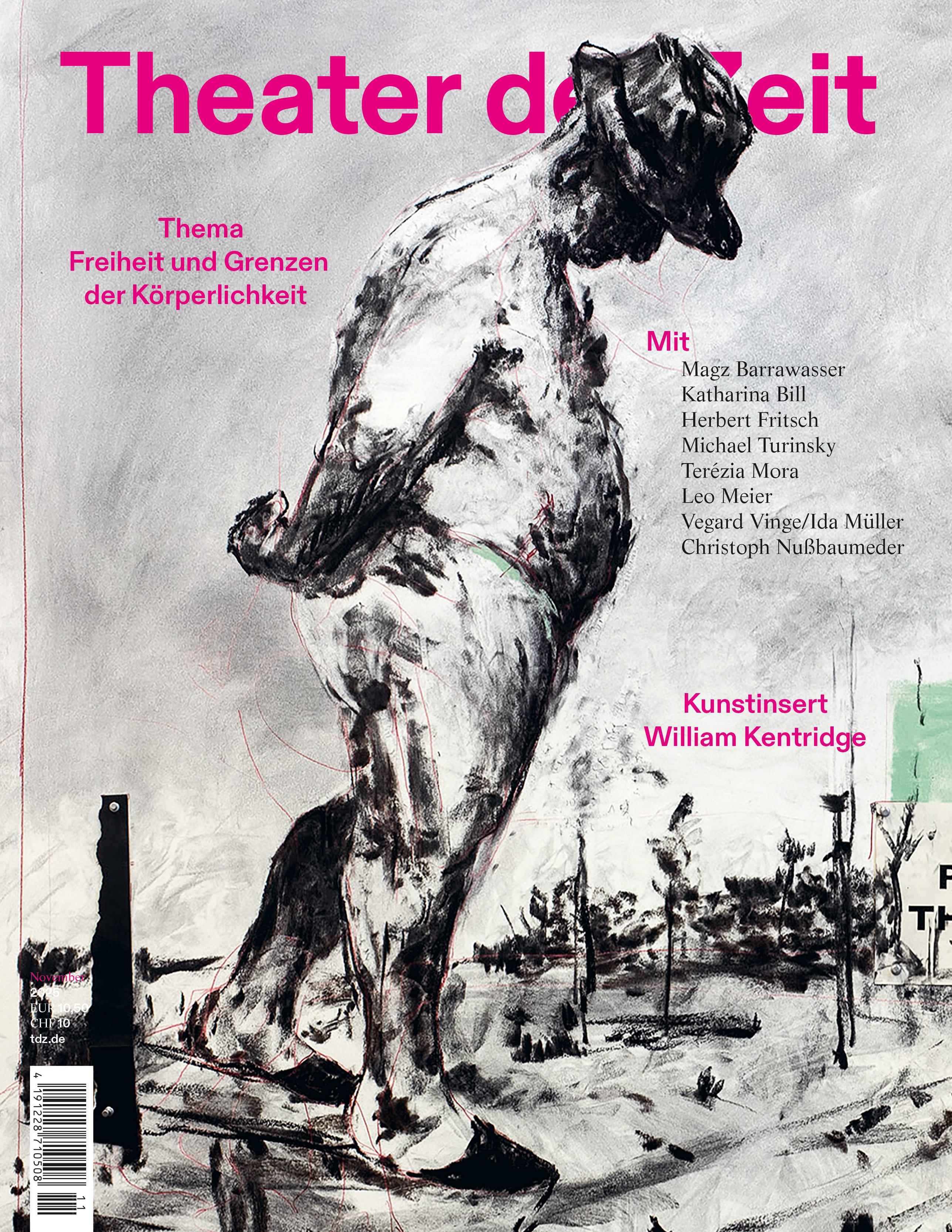Exorcism
von Susanne Kennedy
In the beginning, there was him: HE. Man as the measure of all things, made to rule over the fish in the sea and the birds in the sky, over the livestock and all the wild animals, and over all creatures that creep upon the ground.
He separated himself from the dancing and reciting of the Greek chorus and spoke: “I”—the birth of the tragic hero. From there, he went out into the world to conquer it and all its inhabitants. He appointed himself as the “I” and deemed all the rest “others”. He declared himself a rational and intelligent being and took to the stage to tell of his adventures: conquering the savages and slaughtering the animals.
The imperialist’s monologue on the condition humaine was excellent: he told us how he was created in God’s image. HE made him a subject—a tragic Adam, expelled from paradise, seduced by Eve. Our protagonist shouts, he weeps, he pleads, he moves the audience to tears. They recognise themselves in him! The applause is endless. The critics kneel before him.
But now! In the middle of his performance, our protagonist’s face distorts, his words become thin and mushy, incomprehensible. His movements, which just...















